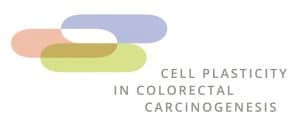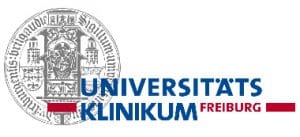Ulcerative colitis (UC) is a well-known risk factor for the development of colorectal cancer (CRC). With regards to UC genome-wide association studies (GWAS) and candidate gene studies have identified a variety of susceptibility loci. In particular, a conducted meta-analysis of six UC GWAS datasets additional risk loci, including Interferon regulatory factor-5 (IRF-5), were identified. IRF-5 functions as transcriptional activators for type-1 interferons and, thus, is capable of modulating multiple genes that encode proteins with diverse effects on cytokine-induced cell plasticity, cell proliferation and differentiation. We can now demonstrate the expression of IRF-5 in UC, colitis-associated colorectal cancer (CAC) and in sporadic CRC. The expression of IRF-5 is not limited to a particular cell type and varies interindividually, as colorectal cancer cells, T cells, B cells, macrophages, as well as tumor cells potentially express IRF-5. Several indicators, including our own preliminary work in mice and human disease, suggest a pathological significance of IRF-5 in the development of colorectal carcinomas. The aim of this project is to demonstrate cell type-specific roles of IRF-5 in intestinal tumorigenesis.
Project 6
Dr. Rebecca Kesselring & Prof. Dr. Stefan Fichtner-Feigl
The cell-specific role of Interferon regulatory factor-5 for tumor cell plasticity and tumor progression during ulcerative colitis-associated and spontaneous colon tumorigenesis

